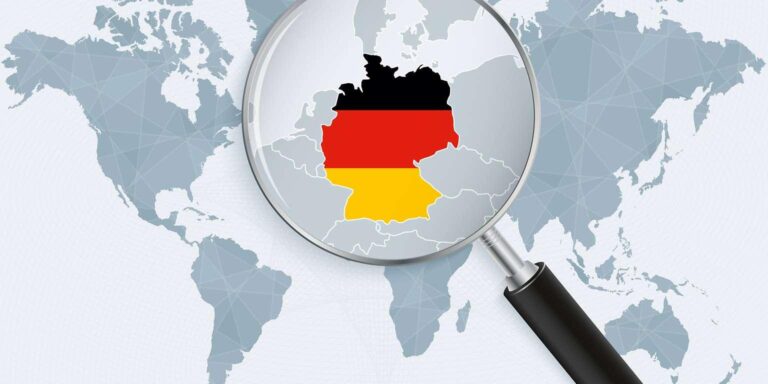Germany has recalled its ambassador to Georgia for consultations amid escalating diplomatic tensions between the two countries. The decision, announced by the German Foreign Ministry, comes in response to recent developments in the region, signaling a significant shift in bilateral relations. This move underscores growing concerns within Berlin over political and security issues affecting Georgia, while highlighting the broader geopolitical challenges in the South Caucasus. Further details on the reasons behind the recall and its potential impact on German-Georgian ties are emerging.
Germany Recalls Ambassador to Georgia Amid Rising Diplomatic Tensions
In a move signaling escalating diplomatic friction, Germany has called back its ambassador from Tbilisi for urgent consultations. This decision comes amid growing disagreements on recent geopolitical developments in the Caucasus region, reflecting Berlin’s concerns over the unfolding situation that has implications for regional stability and European interests. The recall highlights the seriousness with which Germany views the actions of certain Georgian authorities, which it believes undermine mutual trust and cooperation developed over recent years.
Key factors prompting the recall include:
- Increased political instability in Georgia
- Concerns over human rights and democratic processes
- Interruptions in bilateral dialogue between Germany and Georgian officials
- Regional security risks associated with unresolved conflicts
| Aspect | Germany’s Position | Georgia’s Response |
|---|---|---|
| Diplomatic Engagement | Temporarily suspended | Expressed regret, called for dialogue |
| Security Cooperation | Under review | Committed to maintaining ties |
| Economic Relations | Stable but cautious | Open for continued partnership |
Analyzing the Impact of Germany’s Diplomatic Move on Georgia’s Foreign Relations
Germany’s decision to recall its ambassador to Georgia marks a significant development in the diplomatic landscape between the two nations. This unprecedented move signals Berlin’s growing concerns over recent political and security developments in the region. European Union officials and foreign policy experts emphasize that such actions often serve as a catalyst, prompting a reevaluation of bilateral relations and urging Georgia to address the underlying issues that led to the diplomatic strain. The gesture of recalling an ambassador, although temporary, tends to reverberate beyond bilateral diplomacy, potentially influencing Georgia’s broader engagement with Western institutions.
The implications for Georgia’s foreign relations can be analyzed across several critical dimensions:
- Regional Stability: Germany’s move might encourage other EU countries to reassess their diplomatic posture towards Georgia, anticipating potential shifts in regional alliances.
- Economic Relations: Trade and investment discussions could face delays or scrutiny until diplomatic normalcy is restored, impacting projects dependent on strong bilateral cooperation.
- Security Cooperation: Given Germany’s role in NATO and EU security frameworks, the recall may complicate ongoing security collaborations.
| Aspect | Possible Outcome | Timeframe |
|---|---|---|
| EU Integration Progress | Slowdown in negotiations | Short to Medium Term |
| Economic Aid and Investment | Reevaluation of ongoing projects | Medium Term |
| Bilateral Security Ties | Temporary disruption in joint exercises | Immediate to Short Term |
Strategic Recommendations for Georgia to Navigate the Diplomatic Challenge with Germany
In response to escalating diplomatic tensions, Georgia must prioritize a multi-faceted strategy aimed at de-escalation and constructive dialogue with Germany. Immediate measures should include enhanced diplomatic communication channels to foster transparency and rebuild trust. Engaging in high-level bilateral talks can help clarify misunderstandings and create a framework for cooperation moving forward. Diplomats and policymakers should also consider leveraging existing European Union platforms and international mediators to facilitate open negotiations, ensuring that both nations’ core concerns are addressed respectfully and promptly.
Furthermore, Georgia’s approach should encompass a balanced combination of public diplomacy and internal reforms to reinforce its commitment to shared European values. Key strategic actions might involve:
- Strengthening cultural and educational exchanges to maintain people-to-people connections despite political strains.
- Ensuring transparency in foreign policy decisions to prevent further misinterpretations.
- Deploying targeted economic cooperation initiatives that signal willingness to deepen ties beyond the current crisis.
These steps would serve to stabilize the bilateral relationship while positioning Georgia as a proactive and reliable partner amid diplomatic challenges.
| Strategic Focus | Action | Expected Outcome |
|---|---|---|
| Diplomatic Dialogue | Reopen communication channels | Reduce tensions and clarify issues |
| Cultural Cooperation | Expand exchange programs | Maintain public goodwill |
| Economic Initiatives | Joint ventures and trade agreements | Strengthen economic interdependence |
To Wrap It Up
The recall of Germany’s ambassador to Georgia for consultations marks a significant diplomatic development, reflecting growing tensions in the region. As both nations navigate the implications of this move, observers will be closely monitoring subsequent actions and statements from German and Georgian officials. Further updates are expected as the situation evolves.




